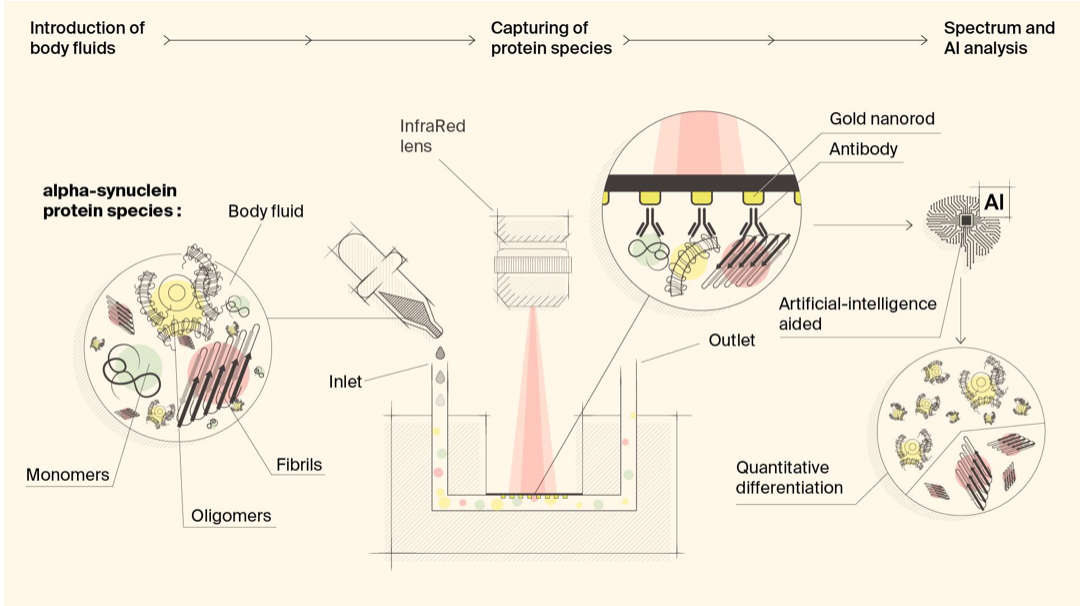Hatice Altug, Hilal Lashue, and EPFL colleagues have developed ImmunoSEIRA, an AI-enhanced, biosensing tool for the detection of misfolded proteins linked to Parkinson’s and Alzheimer’s disease. The researchers also claim that neural networks can quantify disease stage and progression.
The technology holds promise for early detection, monitoring, and assessing treatment options.
Protein misfolding has been identified as a key event in disease progression. It is thought that healthy proteins misfold first into oligomers , and then into fibrils in later stages.
According to Lashuel, “unlike current biochemical approaches which rely on measuring the levels of these molecules, our approach is focused on detecting their abnormal structures. This technology also allows us to differentiate the levels of oligomers and fibrils.”
The sensor uses gold nanorod arrays with antibodies for specific protein detection, enabling real-time capture and structural analysis of target biomarkers from very small samples. Neural networks identify the presence of specific misfolded protein forms. Lashuel believes that “since the disease process is tightly associated with changes in protein structure, we believe that structural biomarkers, especially when integrated with other biochemical and neurodegeneration biomarkers, could pave the way for more precise diagnosis and monitoring of disease progression.”
Join ApplySci at MIT on September 18, 2023, for a scientist-led day of AI, Deep Tech Health , and Neurotech
